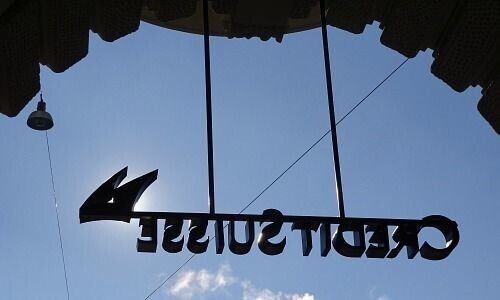Credit Suisse responds to demands for information on various scandals, including Greensill and «Suisse Secrets.»
On March 11, a letter arrived at Credit Suisse from the Ethos Foundation and other shareholders related to supply chain finance funds (SCFF), known as Greensill, and the «Suisse Secrets» data leak. The scandal-plagued bank responded with a statement on Monday (agenda item 8).
Upon receipt of the letter, Credit Suisse initiated a review of the facts and any potentially affected client relationships and accounts. The bank's board of directors prepared responses, submitting them to Ethos, which came back with additional questions; 17 in all.
Credit Suisse decided to publish the answers ahead of its annual general meeting to be held virtually on April 29, therefore providing no opportunity for a direct exchange. «With this publication, all shareholders have the respective information ahead of the annual general meeting and can consider this in the context of their decision-making,» the statement read.
Money Laundering
As related to «Suisse Secrets», customer relationships and accounts were reviewed and possible measures for improvement were evaluated under the rubric of «lessons learned.» Where necessary, client relationships would be reassessed as part of a detailed review based on current standards amidst changed legal and regulatory obligations. This includes, where necessary, evaluating money laundering suspicious activity reports (SARs), the bank said.
Credit Suisse emphasized that, initially, concerns may not have existed with individual clients, but information from negative media reports and other potential problems, may only have come to light at a later date. Those events typically would trigger diligence reviews, leading to the closing of the client relationship and accounts and resulting in further action in-line with applicable standards and regulatory obligations.
Investigations
Credit Suisse said it is relevant to determine if the bank in question has taken all reasonable measures in accordance with existing standards at the time. In view of this, a forensic investigation was initiated with help from external experts, to determine whether inquiries from media and other reports were based on internal data and made available to journalists as part of a data leak.
The data in question in the inquiries involves around 230 names, with some of the allegations dating back to the 1940s.
More Names Found
Approximately 1,400 accounts spanning a period of 38 years were identified in the review, of which 90 percent had been closed or were in the process of being closed. According to media reports, that figure represents only a fraction of accounts and names made available to the media.
Credit Suisse said that based on information published by various media outlets, some 100 additional names were identified, with review and analysis of available information ongoing, including any new names that come to light.



































